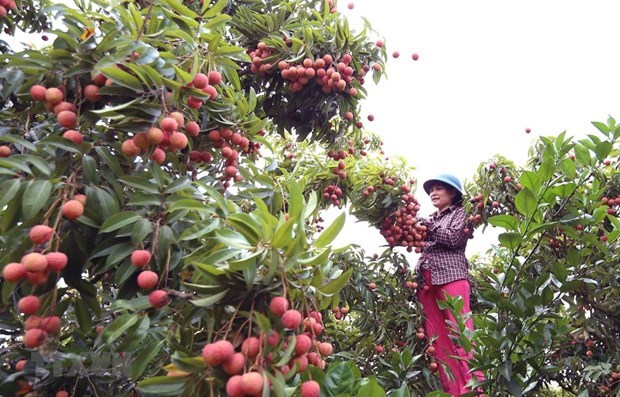MoU signed to boost Vietnam-China fruit trading
Vietnam and China has signed a memorandum of understanding on cooperation in agriculture and fruit sale, expected to facilitate farm produce trading amid difficulties caused by the COVID-19 pandemic.
Vietnam and China has signed a memorandum of understanding on cooperation in agriculture and fruit sale, expected to facilitate farm produce trading amid difficulties caused by the COVID-19 pandemic.
The MoU was inked by the Vietnam Fruit and Vegetable Association and the Guangxi - ASEAN Trade Promotion Association at a teleconference held on August 2 to step up fruit trading between the two countries.
Vietnam is currently the largest trade partner of China, which in turn ranks second among importers of Vietnamese goods.
Only nine fresh fruits of Vietnam are permitted to be exported to China via official channels at present, namely dragon fruit, water melon, lychee, longan, banana, mango, jackfruit, rambutan, and mangosteen.
The Ministry of Agriculture and Rural Development is working to pave the way for other fruits, including durian, pomelo, passion fruit, avocado, and coconut, to enter the Chinese market, which has temporarily licensed the import of sweet potato and chilli from Vietnam.
Farm produce trading between the two countries has been thriving in the recent time.
However, due to the COVID-19 pandemic’s impact, bilateral trade of agricultural products in 2020 dropped by over 4 percent year on year to more than 14.3 billion USD.
Vietnam exported 1.8 billion USD worth of fruits and vegetables to China last year, down 25.7 percent. In the first half of 2021, the shipments rose 16 percent from a year earlier to 1.2 billion USD.
The potential for their agricultural product trade is believed to remain huge as Vietnam ranks 17th in the world and second in ASEAN among agricultural product exporters, while China is the top destination of Vietnamese fruits and vegetables, over 64 percent of the total exports of these commodities in 2020.
The recently signed MoU is hoped to create a chance for associations and businesses of Vietnam to coordinate with their Chinese counterparts to step up ties in farm produce production, processing, and trading amid challenges caused by the pandemic./.









